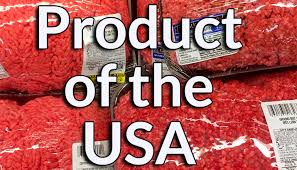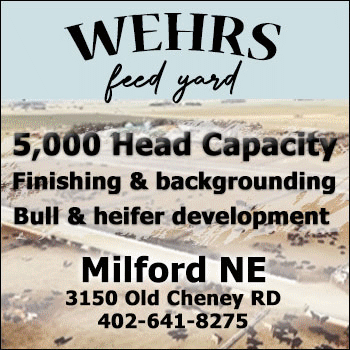By Joyce Evans
The last time I purchased a package of underwear, I checked where it was made. After reading the label, I was certain the materials used were obtained in the USA, but the garment was assembled in another country. That was OK with me, so I made my purchase. Then I went to the grocery section of the store. I reached for a package of steak, and the label read “Product of the USA.” Was I as safe in making the same assumption about the origin of this high-end product as I was about my lowly underwear?
I posed this question to an assortment of acquaintances: “What do you know about a package of meat if the label reads “Product of the USA?” The responses were all over the map. Some people thought the label suggested that the animal had been born and raised in the United States, but it might have been sent to a foreign country for slaughter and processing. Others thought the animal had spent its entire life here and was processed here. Some suggested this meant it was higher quality than other meats. Most were pretty sure it came from a Wyoming ranch. They were united only in their belief that the beef was raised in the U.S.
So they struggled to believe me when I explained they were mistaken, that they had been duped, that this label means nothing beyond the plastic being stretched over the package somewhere within the borders of the United States.
We Americans tend to believe our labels, and that is exactly why we need to institute a mandatory Country of Origin Labeling, or COOL, rule. The time has passed for allowing reluctant meat processors, hesitant big-agriculture groups and foreign trade agreements to prevent American consumers from knowing where their meat was born, raised, fed and processed. The time for forcing independent meat producers in the United States to compete with cheap, possibly inferior products, produced in other countries is long gone.
Fortunately, a new campaign for reform has drawn the attention of some members of Congress. U.S. Sens. John Barrasso and Cynthia Lummis (both Republicans representing Wyoming) have joined colleagues from other mostly Western states to sponsor a bill — the American Beef Labeling Act — to clarify and require country-of-origin labeling for meat. They deserve our thanks for taking this initiative. They will also require strong public comment in order to move this bill through the nation’s legislative bodies and see it through to become law.
Wyoming ranchers deal with incredible obstacles when raising the animals that eventually become part of our diet, including managing genetics, environmental conditions of their ranches, animal-husbandry and veterinary practices, nutrition and more. Then they must navigate a sales system stacked against them, selling in a market flooded with beef from foreign countries. And, finally, their product is sold to consumers in competition with beef gathered from all over the globe. The product presented to the consumer was obtained by a grocery supplier based on the lowest wholesale price to the supermarket. Why on earth would a young person want to go into the beef production business?
In addition to burdens on the livestock producer, cost and health risks to the consumer also play into this topic. But many people are willing to spend more of their income on quality products. They will vote with their dollars and likely discriminate between carefully raised American beef and inferior products. If this bill is passed, it would give them a clearer choice. There are other consumers in our country who do not have the luxury of being picky about their food purchases. It is my contention that those people also deserve to know the origin of the food they put on their tables. They, too, deserve good quality food, and they should not be paying more for poorer quality meats. This bill will increase the availability of higher quality products for every consumer in the United States.
Please support the efforts of our senators to get this legislation passed. Please purchase beef that really was raised in Wyoming if you possibly can, and expect the United States to be more concerned about the origin of your steak than it is with my package of underwear.
Joyce Evans is a fourth-generation rancher originally from Carbon County, Wyoming, where her family ranch is located. Although retired, she maintains an active interest in cattle raising and ranching practices. She resides in Fort Laramie and serves on the board of directors for the Powder River Basin Resource Council.














